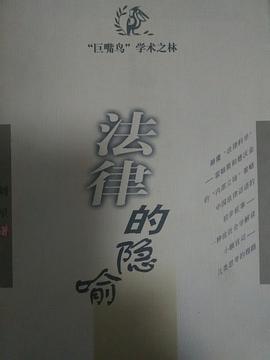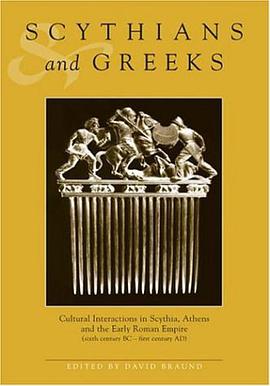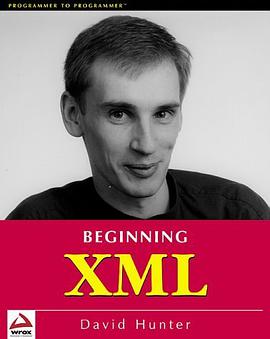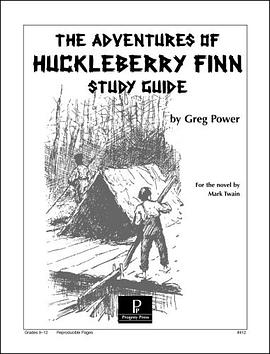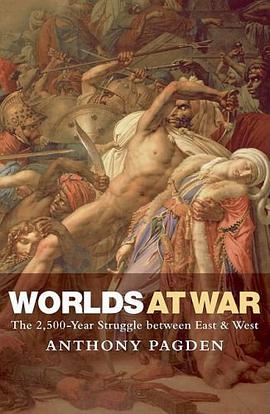

具体描述
The differences that divide West from East go deeper than politics, deeper than religion, argues Anthony Pagden. To understand this volatile relationship, and how it has played out over the centuries, we need to go back before the Crusades, before the birth of Islam, before the birth of Christianity, to the fifth century BCE. Europe was born out of Asia and for centuries the two shared a single history. But when the Persian emperor Xerxes tried to conquer Greece, a struggle began which has never ceased. This book tells the story of that long conflict. First Alexander the Great and then the Romans tried to unite Europe and Asia into a single civilization. With the conversion of the West to Christianity and much of the East to Islam, a bitter war broke out between two universal religions, each claiming world dominance. By the seventeenth century, with the decline of the Church, the contest had shifted from religion to philosophy: the West's scientific rationality in contrast to those sought ultimate guidance it in the words of God. The eighteenth and nineteenth centuries witnessed the disintegration of the great Muslim empires - the Ottoman, the Mughal, and the Safavid in Iran - and the increasing Western domination of the whole of Asia. The resultant attempt to mix Islam and Western modernism sparked off a struggle in the Islamic world between reformers and traditionalists which persists to this day. The wars between East and West have not only been the longest and most costly in human history, they have also formed the West's vision of itself as independent, free, secular, and now democratic. They have shaped, and continue to shape, the nature of the modern world.
作者简介
Anthony Pagden has published widely on both Spanish and European history and has worked as a translator and as a publisher in addition to his many academic posts. He taught at the Universities of Oxford, Cambridge, and Harvard before a professorship at Johns Hopkins University, and he is currently Distinguished Professor of Political Science and History at the University of California, Los Angeles.
目录信息
读后感
“恐怖主义”是怎么来的?东方与西方为何会有重重宿怨?“911事件”之后,这场劫难的幸存者、纽约市长、美国军方和总统都给出了自己的答案。作为一名美国历史学家,安东尼帕戈登(Anthony Pagden)也从自己的角度给出了解答。通过梳理欧洲与亚洲2500年来的战争史,他告诉西方...
评分该书2008荣获美国近东政策研究所图书奖获奖作品,被称为“文明的冲突”历史细节版,可以说在看待东西方冲突上,是比较典型的西方观。 书中的两个世界,主要是西方与东方,但此分划经常处于变动之中,尤其是中国始终不包括在此处的东方之中。 根据作者的观点,东西方的冲突始终...
评分2500年的历史,宏观中带有微观故事的展开,从欧罗巴与特洛伊的故事开始,到21世纪的西方恐怖主义活动为止,书中的东方是喜马拉雅山脉以西的广大世界,而书中东西方界线一直不是清晰的地理分界,是文化上的分野,从东方波斯专制与希腊罗马民主的对立,互相纠缠,互相改变,互相...
评分整本书没有太多说的。 就是西方自由、东方专制的基本常识再讲了一遍。 当然有一些西方近代东方学的有趣内容。 但总体来看新意不大。 只是里面有个内容,颇为有趣。那就是关于早期英国支持犹太人移民巴勒斯坦的一段。 当时英国人认为,在奥斯曼帝国崩溃之后,该地区必然会陷入混...
评分«两个世界的战争»所说的两个世界,一个指的是欧洲世界,即西方基督教世界;另一个指的是北非和中东世界,即伊斯兰教世界。时间跨度纵贯自薛西斯远征希腊开始,至当今世界的共约2500年的历史,主要讲述了两个世界间的战争、交流、认知和起落,堪称一部讲述东西方世界关系...
用户评价
《Worlds at War》这本书,它在我手中,就像一本沉甸甸的时光机器,将我带回了那些曾经吞噬了无数生命、改变了世界面貌的宏大冲突之中。我一直对历史,尤其是那些塑造了我们今天世界的战争,有着一种难以言喻的迷恋,但市面上很多相关的书籍,要么过于浅显,要么过于偏颇。这本书,却以其惊人的深度和广度,为我打开了一个全新的视角。 作者的笔触,简直可以称得上是“点石成金”。TA的文字,既精准地还原了历史的残酷与宏大,又细腻地捕捉到了其中个体生命的悲欢离合。我能在TA的描述中,感受到战场的硝烟弥漫,听到士兵们临刑前的低语,甚至体会到政治家们在黑暗会议室里的权衡。每一次战役的展开,都如同身临其境,充满了视觉冲击力和情感张力。 《Worlds at War》最让我印象深刻的,是对战争原因的深入探究。作者并没有将战争简单地归咎于某个“坏人”或某个“好人”,而是以一种极其客观和 nuanced 的视角,去剖析政治、经济、文化、意识形态等多种复杂因素是如何交织在一起,最终点燃了战火。TA展示了历史的复杂性和多面性,以及在宏大的历史洪流中,个体选择的无奈与伟大。 本书的叙事结构也相当出色。作者并没有采用刻板的线性叙事,而是巧妙地运用了时间线的跳跃和多视角的呈现。有时,我会被带入到高层战略决策的殿堂,理解宏观的布局;转瞬之间,我又会聚焦于一个普通士兵的微观视角,感受战争对他个人生活的直接冲击。这种叙事上的“剪辑”,使得整个故事更加立体生动,也让读者能从更全面的角度去理解战争的复杂性。 让我尤为感动的是,作者在描绘战争的血腥与残酷的同时,并没有忽视其中闪耀的人性光辉。TA的故事里,有在绝望中迸发的勇气,有在逆境中闪烁的智慧,有为了信念而牺牲的伟大。这些片段,如同黑暗中的星辰,温暖了我,也让我对人类的坚韧与希望充满了敬意。这种对人性的深刻洞察,让《Worlds at War》超越了一般的史书,成为了一部关于人类精神的史诗。 合上《Worlds at War》的最后一页,我感觉自己仿佛经历了一次深刻的心灵洗礼。这本书让我对历史有了更深的敬畏,对人性有了更深的理解,也对我们所处的时代有了更清醒的认识。它是一部值得反复阅读的经典之作,每一次重读,都能从中汲取新的力量和智慧。我毫不犹豫地将其推荐给每一位渴望探索历史深邃之处、思考人类命运的读者。
评分《Worlds at War》这本书,对我而言,就像是打开了一扇尘封已久的窗户,让我得以窥见那个风起云涌、改变世界格局的年代。我一直对历史,特别是那些充满冲突与变革的时期,有着浓厚的兴趣,但很多时候,我所能接触到的史料,要么过于零散,要么过于片面。而这本书,以其宏大的视野和深刻的洞察力,为我勾勒出了一个完整而生动的战争图景。 作者的笔触,我只能用“炉火纯青”来形容。TA的文字,既有史学家的严谨与客观,又不失文学家的感染力与生动性。我能在TA的笔下,感受到战火纷飞的真实,体验到士兵们在生死关头的挣扎,甚至能揣摩到决策者们在关键时刻的权衡。每一次战役的描绘,都充满了细节,让我仿佛置身其中,亲历那段波澜壮阔的历史。 《Worlds at War》最让我赞叹的,是对战争复杂性的深刻剖析。作者并没有简单地将冲突归结于某个英雄人物或某个单一事件,而是深入挖掘了政治、经济、文化、意识形态等多种复杂因素相互作用的深层逻辑。TA以一种宏观的历史观,展示了战争是如何在历史的必然性与偶然性中展开,又是如何深刻地塑造了不同的文明和民族。这种深刻的洞察力,让我对战争的本质有了全新的认识。 这本书的叙事结构也极具匠心。作者并没有拘泥于刻板的线性叙事,而是巧妙地运用了多视角的切换和时间线的交错。我时而在宏大的战略层面,理解全局的布局;时而又会聚焦于一个普通士兵的日常,感受战争对他生活带来的细微却致命的影响。这种叙事上的“剪辑”,使得整个故事更加立体生动,也让读者能从更广阔的视角去理解战争的全貌。 令我尤为感动的是,作者在描绘战争的残酷与血腥的同时,并没有忽视其中涌现出的,那些超越一切黑暗的人性光辉。TA的故事里,有在绝望中迸发的勇气,有在逆境中闪烁的智慧,有为了信念而牺牲的伟大。这些故事,如同黑暗中的烛火,温暖了我,也让我对人类的韧性与希望充满了敬意。这种对人性的深刻关怀,让《Worlds at War》超越了一般的史书,成为了一部关于人类精神的史诗。 合上《Worlds at War》的最后一页,我感觉自己仿佛经历了一次漫长而深刻的心灵之旅。这本书让我对历史有了更深的敬畏,对人性有了更深的理解,也对我们所处的时代有了更清醒的认识。它是一部值得反复阅读的经典之作,每一次重读,都能从中汲取新的力量和智慧。我毫不犹豫地将其推荐给每一位渴望探索历史深邃之处、思考人类命运的读者。
评分《Worlds at War》这本书,它给了我一种前所未有的阅读体验,仿佛我不仅仅是在翻阅一本历史书,更像是在亲身经历一场又一场决定文明命运的史诗级战役。我一直对那些波澜壮阔的历史时期充满好奇,但很多时候,市面上的一些历史读物,要么流于表面,要么充斥着主观的臆断,很难真正触及历史的灵魂。而这本书,则以其深刻的洞察力和严谨的论证,彻底征服了我。 作者的叙事风格,我只能用“引人入胜”来形容。TA的笔触,既有史学家的客观与严谨,又不乏文学家的感染力与生动性。我能在TA的文字中,感受到硝烟弥漫的战场氛围,听到战马嘶鸣的激昂,甚至体会到决策者们在深夜会议室里的焦虑与挣扎。每一次战役的描绘,都充满了电影般的画面感,让我仿佛置身其中,无法自拔。 《Worlds at War》最让我惊叹之处,在于其对战争根源的深刻剖析。作者并没有简单地将战争归咎于某个英雄人物或某个偶然事件,而是深入挖掘了政治、经济、文化、意识形态等多种复杂因素相互作用的深层逻辑。TA以一种宏观的历史观,展示了战争是如何在历史的必然性与偶然性中一步步展开,又是如何深刻地影响着人类文明的走向。这种深刻的洞察力,让我对战争的本质有了全新的认识。 这本书的叙事结构也相当出色。作者并没有拘泥于刻板的线性叙事,而是巧妙地运用了多视角的切换和时间线的交错。我时而在宏大的战略层面,理解全局的布局;时而又会聚焦于一个普通士兵的日常,感受战争对他个人生活的直接冲击。这种叙事上的“剪辑”,使得整个故事更加立体生动,也让读者能从更广阔的视角去理解战争的全貌。 令我尤为感动的是,作者在描绘战争的残酷与血腥的同时,并没有忽视其中涌现出的,那些超越一切黑暗的人性光辉。TA的故事里,有在绝望中迸发的勇气,有在逆境中闪烁的智慧,有为了信念而牺牲的伟大。这些片段,如同黑暗中的星辰,温暖了我,也让我对人类的坚韧与希望充满了敬意。这种对人性的深刻洞察,让《Worlds at War》超越了一般的史书,成为了一部关于人类精神的史诗。 合上《Worlds at War》的最后一页,我感觉自己仿佛经历了一次深刻的心灵洗礼。这本书让我对历史有了更深的敬畏,对人性有了更深的理解,也对我们所处的时代有了更清醒的认识。它是一部值得反复阅读的经典之作,每一次重读,都能从中汲取新的力量和智慧。我毫不犹豫地将其推荐给每一位渴望探索历史深邃之处、思考人类命运的读者。
评分当我翻开《Worlds at War》的扉页时,我并没有预料到我即将踏上一段如此震撼心灵的旅程。这本书,它不仅仅是纸张与文字的堆砌,更像是一扇通往过去的大门,引领我深入探寻那些曾经吞噬了无数生命、改变了世界格局的宏大冲突。我一直对那些被历史洪流裹挟的时代充满好奇,而这本书,以一种近乎残酷却又无比真实的方式,满足了我对那个时代的求知欲。 作者的叙事风格,我只能用“炉火纯青”来形容。TA笔下的战争,不再是冰冷的战报和数字,而是充满了鲜活的生命和情感。我能感受到炮火在耳边炸响的震撼,能体会到士兵们在生死边缘的恐惧与绝望,也能见证那些在战火中闪耀的人性光辉。每一次战役的描述,都像是一幅幅生动的油画,细节丰富,色彩鲜明,让我仿佛置身其中,亲历那段波澜壮阔的历史。 《Worlds at War》最让我惊叹之处,在于其对战争复杂性的深刻剖析。作者并没有简单地将战争归咎于某个单一因素,而是深入挖掘了政治、经济、文化、意识形态等多种因素交织的复杂网络。TA以一种宏观的视角,展现了战争是如何在历史的必然性与偶然性中展开,又是如何塑造了不同的文明和民族。这种深邃的洞察力,让我对战争的本质有了全新的认识。 这本书的结构安排也极具匠心。作者巧妙地运用了多条时间线和不同的叙事视角,使得整个故事更加立体和饱满。有时,我会跟随一位决策者的宏大视野,理解战略的博弈;下一秒,我又会聚焦于一个普通士兵的个人命运,感受战争对他生活的直接影响。这种叙事上的“切换”,让我在阅读过程中,能够从多个维度去理解战争的全貌,避免了单一视角的局限。 更难能可贵的是,作者在描绘战争的残酷之余,并没有忽视其中人性的光辉。TA在那些最黑暗的时刻,依然能捕捉到希望的火种,展现出人类面对困境时的勇气、智慧和牺牲精神。这些故事,如同黑暗中的星光,点亮了我的内心,让我对人类的未来多了一份信心。这种对人性的深刻洞察,使得《Worlds at War》超越了一般的历史叙事,成为一部关于人类精神的史诗。 读完《Worlds at War》,我感觉自己不仅仅是读了一本书,更像是经历了一场深刻的精神洗礼。这本书让我对历史有了更深的敬畏,对人性有了更深的理解,也对我们所处的时代有了更清醒的认识。它是一部值得反复品读的巨著,每一次重读,都能从中获得新的感悟和启示。我毫不犹豫地将其推荐给每一位渴望探索历史深邃之处、思考人类命运的读者。
评分《Worlds at War》这本书,它就像一把钥匙,为我打开了一扇通往过去的大门,门后是那些被历史长河淹没的,却又深刻影响着我们今天的宏大冲突。我一直对那些决定世界走向的宏大战争时期有着天然的好奇,但很多时候,我所接触到的历史读物,要么过于枯燥,要么过于片面。而这本书,以其宏大的视野和深刻的洞察力,为我勾勒出了一个完整而生动的战争图景。 作者的笔触,我只能用“炉火纯青”来形容。TA的文字,既有史学家的严谨与客观,又不失文学家的感染力与生动性。我能在TA的笔下,感受到战火纷飞的真实,体验到士兵们在生死关头的挣扎,甚至能揣摩到决策者们在关键时刻的权衡。每一次战役的描绘,都充满了细节,让我仿佛置身其中,亲历那段波澜壮阔的历史。 《Worlds at War》最让我赞叹的,是对战争复杂性的深刻剖析。作者并没有简单地将冲突归结于某个“坏人”或某个“好人”,而是以一种极其客观和 nuanced 的视角,去剖析政治、经济、文化、意识形态等多种复杂因素是如何交织在一起,最终点燃了战火。TA展示了历史的复杂性和多面性,以及在宏大的历史洪流中,个体选择的无奈与伟大。 本书的叙事结构也相当出色。作者并没有采用刻板的线性叙事,而是巧妙地运用了时间线的跳跃和多视角的呈现。有时,我会被带入到高层战略决策的殿堂,理解宏观的布局;转瞬之间,我又会聚焦于一个普通士兵的微观视角,感受战争对他个人生活的直接冲击。这种叙事上的“剪辑”,使得整个故事更加立体生动,也让读者能从更全面的角度去理解战争的复杂性。 令我尤为感动的是,作者在描绘战争的残酷与血腥的同时,并没有忽视其中涌现出的,那些超越一切黑暗的人性光辉。TA的故事里,有在绝望中迸发的勇气,有在逆境中闪烁的智慧,有为了信念而牺牲的伟大。这些片段,如同黑暗中的星辰,温暖了我,也让我对人类的坚韧与希望充满了敬意。这种对人性的深刻洞察,让《Worlds at War》超越了一般的史书,成为了一部关于人类精神的史诗。 合上《Worlds at War》的最后一页,我感觉自己仿佛经历了一次深刻的心灵洗礼。这本书让我对历史有了更深的敬畏,对人性有了更深的理解,也对我们所处的时代有了更清醒的认识。它是一部值得反复阅读的经典之作,每一次重读,都能从中汲取新的力量和智慧。我毫不犹豫地将其推荐给每一位渴望探索历史深邃之处、思考人类命运的读者。
评分《Worlds at War》这本书,它如同一个巨大的棱镜,将历史的长河切割成无数斑斓的碎片,然后又以一种令人惊叹的方式,将它们重新组合成一幅波澜壮阔的画卷。我一直对那些决定世界走向的宏大战争时期怀有浓厚的兴趣,但很多时候,我所接触到的历史读物,要么过于枯燥,要么过于片面。而这本书,则以其独特的魅力,彻底颠覆了我对历史叙事的认知。 作者的写作手法,简直可以用“鬼斧神工”来形容。TA的文字,既有史学家的严谨考证,又不失文学家的细腻情感。我常常会在阅读中,被某个生动的场景所吸引,仿佛能听到战鼓擂动,闻到硝烟弥漫。TA笔下的战争,不是冷冰冰的数字和统计,而是充满了鲜活的个体命运和复杂的人性纠葛。每一次战役的描绘,都如同电影画面般在脑海中徐徐展开,让我深切感受到那个时代的悲壮与残酷。 《Worlds at War》最让我着迷的地方,在于其对战争背后深层动因的挖掘。作者并没有简单地将冲突归咎于某个英雄人物或某个偶然事件,而是深入剖析了政治、经济、文化、意识形态等多种复杂因素的相互作用。TA以一种宏大的历史观,展现了战争是如何在历史的必然性与偶然性中一步步展开,又是如何深刻地影响着人类文明的走向。这种深刻的洞察力,让我对战争的本质有了更全面的理解。 这本书的叙事结构也极具创新性。作者并没有拘泥于线性的时间顺序,而是巧妙地运用了多视角的切换和时间线的交错。有时,我会跟随一位远征军的将领,感受战略决策的重大压力;转眼间,我又会置身于一个被战火蹂躏的村庄,体会普通民众的苦难与挣扎。这种叙事上的“蒙太奇”,使得整个故事更加立体饱满,也让读者能从更广阔的视角去理解战争的复杂性。 我不得不提的是,作者在刻画战争的血腥与残酷的同时,并没有忽视其中闪耀的人性光辉。TA在最绝望的时刻,依然能捕捉到希望的微光,展现出人类在困境中的勇气、智慧和牺牲精神。这些故事,如同黑暗中的灯塔,照亮了我内心的迷茫,让我对人类的坚韧与善良充满了敬意。这种对人性的深刻挖掘,使得《Worlds at War》不仅仅是一部历史著作,更是一部关于人类精神的颂歌。 读完《Worlds at War》,我感觉自己仿佛经历了一场深刻的心灵震撼。它让我对历史的理解更加透彻,对人性的认知更加深刻,也对我们所处的时代有了更清醒的警醒。这本书是一部值得反复阅读的经典之作,每一次重读,都能从中获得新的启示和感悟。我强烈推荐给所有对历史、对人类命运、对战争本质感兴趣的读者,它必将带给你一次前所未有的阅读体验。
评分《Worlds at War》这本书,它就像一把钥匙,为我打开了一扇通往过去的大门,门后是那些被历史长河淹没的,却又深刻影响着我们今天的宏大冲突。我一直对那些改变世界的战争时期有着天然的好奇,但很多时候,我所阅读的历史读物,要么流于表面,要么过于偏颇。而这本书,以其令人惊叹的深度和广度,彻底刷新了我对历史叙事的看法。 作者的笔触,我只能用“大师级”来形容。TA并没有将战争描绘成简单的善恶对决,而是深入到每一个决策背后复杂的动机,每一个战役中无数个体的挣扎与选择。我能在TA的文字中,感受到空气中弥漫的火药味,听到士兵们在绝望中的嘶吼,甚至体会到决策者们在权衡利弊时的焦虑。每一次战役的描绘,都充满了电影般的画面感,让我仿佛亲历其境,无法自拔。 《Worlds at War》最让我震撼的,是其对战争根源的深刻洞察。作者以一种极为客观且不带偏见的视角,去剖析政治、经济、文化、宗教等多种因素是如何相互交织,最终点燃了战争的导火索。TA展示了历史的复杂性,以及在宏大的历史进程中,个体命运的渺小与伟大。这种对历史必然性与偶然性的深刻理解,让我对战争的发生有了更深层次的认知。 这本书的叙事结构也是一个亮点。作者并没有选择刻板的线性叙事,而是巧妙地运用了时间线的跳跃和多视角的呈现。我时而在宏大的战略层面,理解全局的布局;时而又会聚焦于一个普通士兵的日常,感受战争对他生活带来的细微却致命的影响。这种叙事上的“穿梭”,让整个故事更加立体生动,也让我能够从更全面的角度去理解战争的全貌。 令我尤为动容的是,作者在描绘战争的残酷与血腥时,并没有遗漏其中涌现出的,那些超越一切黑暗的人性光辉。TA的故事里,有在绝望中迸发的勇气,有在逆境中闪烁的智慧,有为了信念而牺牲的伟大。这些故事,如同黑暗中的烛火,温暖了我,也让我对人类的韧性与希望充满了敬意。这种对人性的深刻关怀,让《Worlds at War》超越了一般的史书,成为了一部关于人类精神的史诗。 合上《Worlds at War》的最后一页,我感觉自己仿佛经历了一次漫长而深刻的心灵之旅。这本书让我对历史有了更深的敬畏,对人性有了更深的理解,也对我们所处的时代有了更清醒的认识。它是一部值得反复阅读的经典之作,每一次重读,都能从中汲取新的力量和智慧。我毫不犹豫地将其推荐给每一位渴望探索历史深邃之处、思考人类命运的读者。
评分《Worlds at War》这本书,它给我的感觉就像是打开了一个尘封已久的宝箱,里面不仅有金光闪闪的珠宝,更有刻满了古老符文的史册。我一直对历史,尤其是那些改变世界格局的战争时期,抱有一种难以言喻的着迷。但很多时候,那些书读起来就像是在啃一本枯燥的教科书,充满了冰冷的数字和事件,却很难真正触碰到历史的灵魂。然而,这本书完全不同。它有一种魔力,能让那些早已化为尘埃的时代,重新在我眼前鲜活起来。 我特别喜欢作者处理战争细节的方式。不是那种简单的“某年某月某地发生了什么”,而是将我带入到那些决定性的瞬间,让你仿佛能听到决策者们在紧张会议中的低语,看到士兵们在硝烟弥漫的战场上拼死的呐喊。那种身临其境的感觉,不是一般读物能给予的。每一次战役的描绘,都像是一部精心拍摄的纪录片,画面感极强,让我不禁为那些在历史洪流中挣扎的个体命运而动容。 更让我印象深刻的是,作者并没有将战争简单地划分为“好人”和“坏人”。TA以一种极其客观且充满智慧的视角,去探究战争的根源,分析不同势力之间的矛盾与博弈。这本书让我看到,即使在最黑暗的战争年代,也存在着复杂的人性,有着各种各样的动机,有无奈的抉择,也有伟大的牺牲。这种多角度的解读,让我在阅读过程中,不断地对历史和人性产生新的思考,打破了我之前一些固有的认知。 《Worlds at War》的叙事结构也相当引人入胜。它不是那种一成不变的线性叙事,而是巧妙地运用了时间线的跳跃和视角的切换。有时,我会被带到一个宏观的战略层面,理解决策者们的宏图伟略;转眼间,我又会聚焦于一个普通士兵的个人视角,感受战争对他生活带来的直接冲击。这种叙事上的“剪辑”,让整个故事更加立体饱满,也让我能从更全面的角度去理解战争的复杂性。 我尤其要称赞作者的语言功底。TA的文字既有史学家的严谨,又不失文学大家的感染力。有时,TA的笔触冷静得像手术刀,精准地解剖战争的病灶;有时,TA的文字又炽热得像火焰,描绘出在绝望中闪耀的人性光辉。这种语言上的张力,使得《Worlds at War》在提供深刻洞见的同时,也具有极高的阅读愉悦度。我常常会被某个句子所触动,然后反复品味,感受文字的力量。 这本书给我带来的冲击,不仅仅是知识上的,更是情感上的。它让我对战争的残酷有了更深刻的认识,也对人类在面对挑战时的韧性有了更深的敬意。读完《Worlds at War》,我感觉自己仿佛经历了一场心灵的洗礼,对历史的理解更加透彻,对人生的思考也更加深刻。它不是一本让你看完就丢在一旁的读物,而是一部值得反复回味、不断从中汲取力量的史诗。 这本书的逻辑性堪称完美。作者在梳理庞杂的史料时,并没有显得杂乱无章,而是层层递进,将错综复杂的事件娓娓道来。每一个章节的展开,都像是解开了一个新的谜题,吸引着我继续深入。在阅读过程中,我发现作者对于因果关系的把握非常到位,使得战争的发生、发展和结局,都有了清晰的脉络。这种严谨的逻辑,让我对书中的论述更加信服,也更能体会到历史演变的必然性。 《Worlds at War》还非常注重对不同文化背景下战争形态的对比和分析。作者并没有局限于某个单一的地域或文化圈,而是将目光投向了全球,展现了不同文明在战争中的碰撞与交融。这种全球化的视野,让本书的内容更加丰富和多元,也让我看到了战争作为一种跨越文化和地域的现象,其共性与特性。这种广阔的视角,无疑提升了本书的学术价值和思想深度。 我得说,这本书的篇幅虽然不小,但读起来却一点也不觉得冗长。作者的叙事节奏把握得非常好,在宏大的历史背景下,又穿插了大量生动的人物故事和细节描写,使得整个阅读体验始终保持着新鲜感和吸引力。这种“张弛有度”的写作方式,让我能够沉浸其中,仿佛置身于那个波澜壮阔的年代,与书中人物一同经历风雨,感受悲欢离合。 总而言之,《Worlds at War》是一部足以载入史册的杰作。它不仅仅是一部关于战争的书,更是一部关于人类文明、关于历史进程、关于人性深渊与光辉的宏大叙事。作者以其卓越的才华和深刻的洞察力,为我们描绘了一幅令人震撼的战争史诗。我毫不犹豫地将其推荐给每一位渴望深入理解历史、思考人类命运的读者。这本书,必将带给你无与伦比的阅读体验,并让你在合上书页后,久久不能平静。
评分《Worlds at War》这本书,它给了我一种前所未有的阅读体验,仿佛我不仅仅是在翻阅一本历史书,更像是在亲身经历一场又一场决定文明命运的史诗级战役。我一直对那些波澜壮阔的历史时期充满好奇,但很多时候,市面上的一些历史读物,要么流于表面,要么充斥着主观的臆断,很难真正触及历史的灵魂。而这本书,则以其深刻的洞察力和严谨的论证,彻底征服了我。 作者的叙事风格,我只能用“引人入胜”来形容。TA的笔触,既有史学家的客观与严谨,又不乏文学家的感染力与生动性。我能在TA的文字中,感受到硝烟弥漫的战场氛围,听到战马嘶鸣的激昂,甚至体会到决策者们在深夜会议室里的焦虑与挣扎。每一次战役的描绘,都充满了电影般的画面感,让我仿佛置身其中,无法自拔。 《Worlds at War》最让我惊叹之处,在于其对战争根源的深刻剖析。作者并没有简单地将战争归咎于某个英雄人物或某个偶然事件,而是深入挖掘了政治、经济、文化、意识形态等多种复杂因素相互作用的深层逻辑。TA以一种宏观的历史观,展示了战争是如何在历史的必然性与偶然性中一步步展开,又是如何深刻地影响着人类文明的走向。这种深刻的洞察力,让我对战争的本质有了全新的认识。 这本书的叙事结构也相当出色。作者并没有拘泥于刻板的线性叙事,而是巧妙地运用了多视角的切换和时间线的交错。我时而在宏大的战略层面,理解全局的布局;时而又会聚焦于一个普通士兵的日常,感受战争对他生活带来的细微却致命的影响。这种叙事上的“剪辑”,使得整个故事更加立体生动,也让读者能从更广阔的视角去理解战争的全貌。 令我尤为感动的是,作者在描绘战争的残酷与血腥的同时,并没有忽视其中涌现出的,那些超越一切黑暗的人性光辉。TA的故事里,有在绝望中迸发的勇气,有在逆境中闪烁的智慧,有为了信念而牺牲的伟大。这些片段,如同黑暗中的星辰,温暖了我,也让我对人类的坚韧与希望充满了敬意。这种对人性的深刻洞察,让《Worlds at War》超越了一般的史书,成为了一部关于人类精神的史诗。 合上《Worlds at War》的最后一页,我感觉自己仿佛经历了一次深刻的心灵洗礼。这本书让我对历史有了更深的敬畏,对人性有了更深的理解,也对我们所处的时代有了更清醒的认识。它是一部值得反复阅读的经典之作,每一次重读,都能从中汲取新的力量和智慧。我毫不犹豫地将其推荐给每一位渴望探索历史深邃之处、思考人类命运的读者。
评分这本《Worlds at War》简直就是我近期阅读体验中的一股清流,甚至可以说是一场地震!我通常对这类宏大的历史叙事抱有一种既期待又有些敬畏的态度,毕竟要驾驭如此庞杂的战争史,稍有不慎就会变成枯燥的年表堆砌。然而,作者(此处请允许我暂时称呼TA为“织梦者”,因为TA的书带我走进了一个如此生动且令人难忘的世界)却用一种近乎奇迹般的笔触,将无数个被历史洪流裹挟的个体命运、宏观战略的变幻莫测以及战争最赤裸裸的残酷性,交织成一幅波澜壮阔、感人至深的画卷。 我尤其惊叹于作者对细节的把握。这不是那种简单罗列战役地点、参战人数的枯燥记述,而是将我带入了战壕,感受着泥泞、饥饿和恐惧;让我看到了政治家们在会议室里如何权衡利弊,他们的每一个决定都可能牵动数百万人的生死;甚至让我体会到了普通士兵在短暂间隙里的喘息,他们对家人的思念,以及在绝望中爆发出的惊人勇气。每一次战役的描述,都如同身临其境,我能听到炮火的轰鸣,闻到硝烟的味道,甚至感受到胜利的喜悦和失败的痛苦。这种沉浸式的阅读体验,是我很久没有过的了。 而且,《Worlds at War》的叙事结构也并非线性推进,作者巧妙地运用了多视角、多时间线的切换,这使得整个故事更加立体和丰富。有时,我会跟随一位在遥远东方浴血奋战的年轻士兵,感受他内心深处的迷茫与挣扎;下一秒,我又会置身于一间古老欧洲城堡的指挥厅,倾听将军们如何分析战局,制定下一个致命的策略。这种叙事上的跳跃,非但没有打乱我的阅读节奏,反而像是在拼凑一幅巨大的拼图,每一个碎片都承载着独特的信息和情感,最终汇聚成一个更为宏大和深刻的整体。 作者的语言风格也是一大亮点。TA时而以一种冷静客观的笔调,分析战争的根源和影响,如同一个睿智的长者在娓娓道来;时而又会迸发出饱含情感的文字,描绘战争对人性的摧残,以及在黑暗中闪烁的人性之光。这种语言上的张力,使得《Worlds at War》既有学术的严谨性,又不失文学的感染力。我常常会在阅读的过程中,因为某个词语、某个句子而停下来,反复回味,那种文字的力量,足以撼动人心。 更让我印象深刻的是,《Worlds at War》并没有简单地将某个民族或国家描绘成绝对的正义或邪恶。作者以一种更包容和理解的姿态,去探讨战争发生的原因,以及不同立场下人们的无奈和选择。TA揭示了那些隐藏在历史迷雾下的复杂动机,以及那些被宏大叙事所掩盖的个体悲剧。阅读这本书,我感觉自己不再是旁观者,而是被带入了一个更广阔的道德和情感的维度,去思考战争本身的意义,以及我们在其中所扮演的角色。 读完《Worlds at War》,我感觉自己仿佛经历了一场漫长而深刻的精神洗礼。这本书不仅仅是对一场场宏大战争的记录,更是对人类历史、人性、以及文明发展轨迹的深刻反思。它让我看到了人类在追求权力、理想与生存的过程中所付出的巨大代价,也让我看到了在最黑暗的时刻,希望与坚韧的光芒是如何闪耀。这本书的份量,远超乎我最初的想象,它是一部值得反复品读、细细体味的史诗。 这本书的结构设计也是我极其赞赏的一点。它并非一股脑地将所有信息倾泻而出,而是通过巧妙的章节编排,让读者在逐步深入的过程中,不断地被新的信息和视角所吸引。有时,一个看似微不足道的细节,在后续的章节中会揭示出其巨大的连锁反应;有时,一个宏大的战略决策,会在某个普通士兵的个人经历中找到最真实的注脚。这种层层递进、环环相扣的叙事方式,让阅读的过程充满探索的乐趣,也让作者想要传达的关于战争的复杂性和多面性,得到了淋漓尽致的展现。 作者在处理战争中的“为什么”和“怎么样”之间,找到了一个极其精妙的平衡点。《Worlds at War》并没有回避战争的残酷与血腥,但TA并没有沉溺于血肉横飞的描写,而是将重点放在了对战争背后动机、策略演变以及对人类社会深远影响的剖析上。每一次战役的描述,都像是精心设计的舞台,每一个角色都在各自的岗位上扮演着至关重要的角色,而作者,就像一位经验丰富的导演,将这一切安排得井井有条,既有宏大的场面,又不乏细腻的情感刻画。 这本书带来的不仅仅是知识的增长,更是一种对历史和人生的深刻感悟。它让我意识到,战争并非遥远的、与我无关的历史事件,而是由无数个个体选择和命运交织而成的复杂产物。在阅读《Worlds at War》的过程中,我常常会停下来,思考作者提出的那些关于权力、意识形态、以及人性弱点的问题。这些思考,如同一颗颗种子,在我的脑海中生根发芽,让我对当前的世界格局和人类的未来,有了更深层次的理解和警醒。 总而言之,《Worlds at War》是一部真正意义上的杰作。它不仅仅是一本关于战争的书,更是一部关于人类命运、关于文明兴衰、关于人性光辉与阴暗的百科全书。作者以其非凡的才华和深刻的洞察力,为我们呈现了一场思想的盛宴。我强烈推荐给所有对历史、对人类社会、对战争的本质感兴趣的读者。这本书,必将成为我书架上最珍贵的藏品之一,也是我今后思考问题时,会反复回溯的精神源泉。
评分 评分 评分 评分 评分相关图书
本站所有内容均为互联网搜索引擎提供的公开搜索信息,本站不存储任何数据与内容,任何内容与数据均与本站无关,如有需要请联系相关搜索引擎包括但不限于百度,google,bing,sogou 等
© 2026 book.quotespace.org All Rights Reserved. 小美书屋 版权所有


